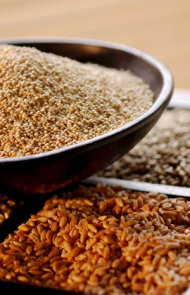'I lived under secretariat bridge for nine years until...'
The sleep town of Ibokun, Osun State, was recently set agog with fanfare when the former first lady of Oyo State, Chief (Mrs) Oluwakemi Alao-Akala visited Emmanuel Fakulujo, a man who lived under the Oyo State secretariat bridge for nine years until he was rehabilitated by her. Rotimi Ige, who was there, brings Emmanuel's proverbial story of rising from grass to grace.
THE proverb, rising from grass to grace, is one that, though may be hard to experience these days, still exists. Not many ordinary people have the opportunity of having a chance meeting with the governor or first lady of a state, not to talk of having them as friends.
But that exactly was what happened to a retiree, Mr Emmanuel Olawole Fakulujo of Fakulujo compound, Ibokun town, Obokun Local Government of Osun State. Before his retirement in 2000, he had worked at the former Oyo State Ministry of Trade, Industry and Cooperatives, now Ministry of Commerce and Industry, at the state secretariat, Ibadan, for 30 years.
He joined the ministry as a clerk in 1970, after leaving Ibokun town in 1964 in search of the proverbial golden fleece. He left home at the age of 14 to live with his grandmother in Ibadan but after some time, left to seek a white collar job when he was fed up with selling wares. On getting the job, he went ahead to train himself to university level and served at the said ministry until he retired meritoriously in 2000.
Upon retirement, things turned sour for Mr Fakulujo, so bad that he resorted to living under the Oyo state secretariat over-head bridge at Agodi, Ibadan because he couldn't afford to pay his rent. He also could not stand going back to his home town, after he had left for over 30 years. And that was why he lived under the over-head bridge for nine years, until fate decided to smile upon him once again.
One day, (Chief) Mrs Oluwakemi Alao-Akala, then, the first lady of Oyo State, in 2009, noticed that a particular man was always under the bridge anytime she passed by. Upon further enquiry, she found out that he needed rehabilitation as being without proper feeding and care had taken a toll on him physically and mentally. She decided to adopt him, using her Community Link Advancement Programme (CLAP), to rehabilitate and re-integrate him into the society while also relocating him back to his hometown and family.
Mr Fakulujo was first taken to the Neuropsychiatric Home, Aro, Abeokuta, Ogun State, where he was tested and treated so that he could regain his balance and then he was taken back to Ibokun and reunited with his family.
On 10 October, 2012, Her Excellency, Mrs Alao-Akala, decided to visit Mr Fakulujo again, as she normally did every six months. She, along with her Glorious Destiny group, headed by the wife of the former Deputy Speaker's wife, Mrs Temilorun Adeleke, took a trip to Ibokun town, where they were received by the Owa of Ibokun, Kabiyesi Festus Kayode Awogboro, and his chief-in-council, at the royal court. The oba, in his address, was full of praises to Mrs Alao-Akala for the good deed bestowed upon one of his subjects.
He stressed that despite the fact that Emmanuel Fakulujo was not an indigene of Oyo State and that she was no longer in government, it was commendable that she could still deem it fit to continue to cater for all his needs. He enjoined those in power and everyone who was wealthy enough, to emulate Mrs Akala's gesture of love as there were still so many people in need. In appreciation, he announced that a chieftancy title would be conferred on her, come December 1, 2012.
In response, Mrs Alao-Akala thanked the oba, stressing that she was grateful to God for the opportunity to help someone in dire need. She said that whenever she passed by the secretariat bridge, she was distressed that such an elderly man was there in open weather. After much enquiry, she found out that he was from Ibokun town. She thanked the people of Ibokun for the chieftancy title bestowed on her.
Diran Odeyemi, who was also present, thanked the oba and the people of Ibokun, stating that Mrs Alao-Akala was a worthy person for the title.
The group then proceeded to Mr Fakulujo's abode, where the former governor's wife spent close to an hour, interacting with Emmanuel and members of his extended family, after which she presented gifts items, clothes, food and his yearly stipend.
Fakulujo's sister, Foyeke Adejoorin, while speaking with the Nigerian Tribune, was full of thanks for Mrs Alao-Akala, describing her as God-sent, as she had completely taken over the upkeep of Emmanuel for over three years. She stressed that the food items, clothes and stipend provided for her brother had gone a long way in helping to keep him alive and well, adding that the entire household of Fakulujo would forever be indebted to the Alao-Akalas. Nigerian Tribune also spoke to the man who had been tasked with keeping Emmanuel's stipend, a Deeper Life Church pastor, Fajemidagba Benjamin, who said that the monies sent to Emmanuel had been regular and were more than adequate for his daily upkeep. He encouraged notable Nigerians to emulate Mrs Alao-Akala's gestures so that more people could be taken off the streets.
Mrs Alao-Akala's CLAP initiative, even after her tenure as the wife of the Oyo State governor, still caters for close to 100 beneficiaries who, till date, receive help and assistance. Indeed, through this, she continues to extend her benevolence to as many as she comes across, changing their lives for the better.
Written by Rotimi Ige
Monday, October 15, 2012
NIGERIAN TRIBUNE
 News
News  Wednesday, December 5, 2012
Wednesday, December 5, 2012





 Education
Education Thursday, October 25, 2012
Thursday, October 25, 2012


 Crime Guard
Crime Guard Saturday, September 8, 2012
Saturday, September 8, 2012



